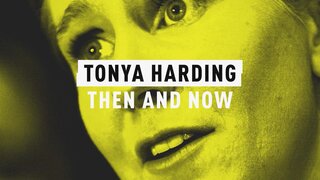Create a free profile to get unlimited access to exclusive videos, breaking news, sweepstakes, and more!
Tonya Harding In NYT Interview: 'You All Disrespected Me And It Hurt"
"Finally everybody can just eat crow. That’s what I have to say,” says the former Olympic figure skater who was associated with the kneecapping of her rival Nancy Kerrigan.

In an interview with the New York Times, former Olympic skater Tonya Harding (who now goes by the name Tonya Price) reflects on the success of her the film I, Tonya, in which she is depicted by actress Margot Robbie. The delightfully postmodern take on the true crime genre has been garnering critical approval and may work towards changing public opinion about the disgraced athlete. In the interview, Harding displayed little remorse for the crime she may or may not have been involved with — instead, she reflected on the abuse she has suffered at the hands of trolls, her family, and America.
Harding's involvement on the attack of her competitor, Nancy Kerrigan, in 1994 has been the subject of scrutiny and international intrigue since the event occurred. Kerrigan had been struck in the knee with a retractable baton by an inept hitman ahead of the Olympic games. It was later discovered that Harding's ex-husband Jeff Gillooly (and her bodyguard, Shawn Eckhardt) had orchestrated the hit. Both were punished by the law and despite the denial of her involvement in the situation, Harding was punsihed as well: she managed to avoid jail time but was ultimately banned for life from participating in United States Figure Skating Association-run events as either a skater or a coach.
Now, years later, Harding has rebuilt her life without figure skating and has since remarried. She has a son with her new husband and has relocated to Washington.
In the new interview, Harding explains how she felt betrayed by the American people after becoming a national joke. Not only had her name become synonymous with an attack she claims she had no involvement in committing, she was also the target of abuse from complete strangers: “I’ve had rats thrown into my mailboxes, [expletive] left on my door, left in my mailbox, all over my trucks. You name it, it’s been done to me," she says.
Harding's reflections on the new film were largely positive, but she did note that the alleged physical abuse she faced from her mother and ex-husband were far more devastating and traumatic in real life: “People don’t understand that what you guys see in the movie is nothing,” she said. “That was the smallest little bits and pieces. I mean, my face was bruised. My face was put through a mirror, not just broken onto it. Through it. I was shot. That was true.”
In her sport, Harding had been somewhat of an outcast due to her rejection of a typically feminine presentation, and similarly recalled being ridiculed by judges and officials long before the notorious Olympic incident: “I was always told I was fat. I was ugly. I wouldn’t amount to anything. ‘If you don’t smile and follow through they’re not going to give you the marks. If you wear that ribbon they’re not going to give you the marks. If you wear that dress they’re not going to give you the marks.’”
“The media abused me in the first place," Harding also proclaims, reflecting on how her story was (and often continues to be) treated. “Who gives these people permission to use my name?” she added as an example, complaining of the sympathetic and quite precious Sufjan Stephens song which invokes the skater.
“You all disrespected me and it hurt. I’m a human being and it hurt my heart,” she continued. “I was a liar to everybody but still, 23 years later, finally everybody can just eat crow. That’s what I have to say.”
Harding's account of events during the interview were described by writer Taffy Brodesser-Akner as frequently fictitious: "A lot of what she said wasn’t true. She contradicted herself endlessly. But she reminded me of other people I’ve known who have survived trauma and abuse, and who tell their stories again and again to explain what had happened to them but also to process it themselves."
"I love my country," Harding concludes. "If they don’t love me, I don’t care. I don’t care."
[Photo: Getty Images]






















